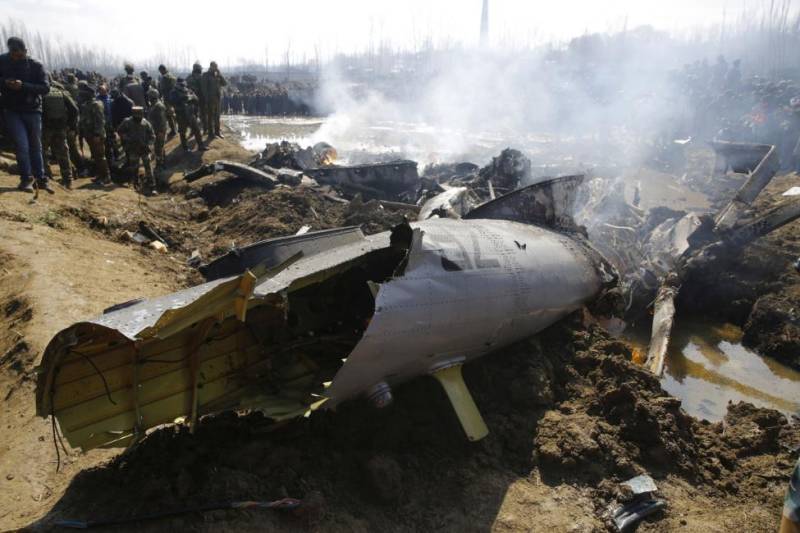
A United States-based think tank, Stratfor, has said that there is a possibility of a sharper confrontation between Pakistan and India over Kashmir issue, considering India’s elections are right around the corner.
The tensions between the two rival countries escalated in the wake of Pulwama attack, which killed more than 40 Indian paramilitary troops. Following the attack, India had intruded into Pakistan’s airspace to target an alleged Jaish-e-Mohammed (JeM) camp—the militant group that claimed responsibility for Pulwama attack—in Balakot. India claimed that it had killed 350 militants during the strikes. However, Pakistan had denied the claims, saying that India had hit nothing but some trees and India is yet to provide any evidence to ascertain the claim.
According to Stratfor, the latest episode of India’s aggression shows that India is willing to use bolder tactics against Pakistan’s continued support of Kashmiri militants, “meaning the next round of retaliation between the South Asian rivals will almost surely be more dangerous than the last”.
No matter how suspicious claims of both countries are, regardless of who's right, the fact the Indian airstrike occurred in an undisputed territory outside of Azad Jammu Kashmir not only demonstrates India's ability, but its willingness, to breach Pakistan’s air defences.
India’s Prime Minister Narendra Modi would use the latest events in order to gain popular support in the elections, which are to be held by May this year. He has already started to term opposition and anyone who questions the claims related to the airstrikes as anti-national and he wouldn’t stop at anything.
According to Stratfor, “But even if Modi's strong-willed words don’t spark another escalation in the coming months, India and Pakistan's history, along with Islamabad's continued support of Kashmiri militants, make the next crisis in the disputed territory all but certain — with India striking back, prompting Pakistan to again respond in kind. And depending on the size of India's next retaliation, the two rivals could very well move toward a sharper confrontation that tests the limits of their aversion to another war.”
Both countries dispute over Kashmir territory and it dates back to the United Kingdom’s division of colonial India into what is now India and Pakistan. However, as a semi-sovereign princely state, Kashmir remained an undecided territory between the two. Considering Pakistan was Muslim majority, it had presumed that the whole of Kashmir belonged to it. Islamabad also worried that surrendering Kashmir would mean that New Delhi would have undue influence over key waterways. India, on the other hand, refused to cede even more territory to its new neighbour, fearing that a Kashmiri secession would breathe life into other autonomous movements as well — and thereby claimed Kashmir's rightful home was under the Indian flag.
And so, Pakistan fought many wars to conquer the disputed territory but it remained vain.
The tensions between the two rival countries escalated in the wake of Pulwama attack, which killed more than 40 Indian paramilitary troops. Following the attack, India had intruded into Pakistan’s airspace to target an alleged Jaish-e-Mohammed (JeM) camp—the militant group that claimed responsibility for Pulwama attack—in Balakot. India claimed that it had killed 350 militants during the strikes. However, Pakistan had denied the claims, saying that India had hit nothing but some trees and India is yet to provide any evidence to ascertain the claim.
According to Stratfor, the latest episode of India’s aggression shows that India is willing to use bolder tactics against Pakistan’s continued support of Kashmiri militants, “meaning the next round of retaliation between the South Asian rivals will almost surely be more dangerous than the last”.
No matter how suspicious claims of both countries are, regardless of who's right, the fact the Indian airstrike occurred in an undisputed territory outside of Azad Jammu Kashmir not only demonstrates India's ability, but its willingness, to breach Pakistan’s air defences.
India’s Prime Minister Narendra Modi would use the latest events in order to gain popular support in the elections, which are to be held by May this year. He has already started to term opposition and anyone who questions the claims related to the airstrikes as anti-national and he wouldn’t stop at anything.
According to Stratfor, “But even if Modi's strong-willed words don’t spark another escalation in the coming months, India and Pakistan's history, along with Islamabad's continued support of Kashmiri militants, make the next crisis in the disputed territory all but certain — with India striking back, prompting Pakistan to again respond in kind. And depending on the size of India's next retaliation, the two rivals could very well move toward a sharper confrontation that tests the limits of their aversion to another war.”
Both countries dispute over Kashmir territory and it dates back to the United Kingdom’s division of colonial India into what is now India and Pakistan. However, as a semi-sovereign princely state, Kashmir remained an undecided territory between the two. Considering Pakistan was Muslim majority, it had presumed that the whole of Kashmir belonged to it. Islamabad also worried that surrendering Kashmir would mean that New Delhi would have undue influence over key waterways. India, on the other hand, refused to cede even more territory to its new neighbour, fearing that a Kashmiri secession would breathe life into other autonomous movements as well — and thereby claimed Kashmir's rightful home was under the Indian flag.
And so, Pakistan fought many wars to conquer the disputed territory but it remained vain.
